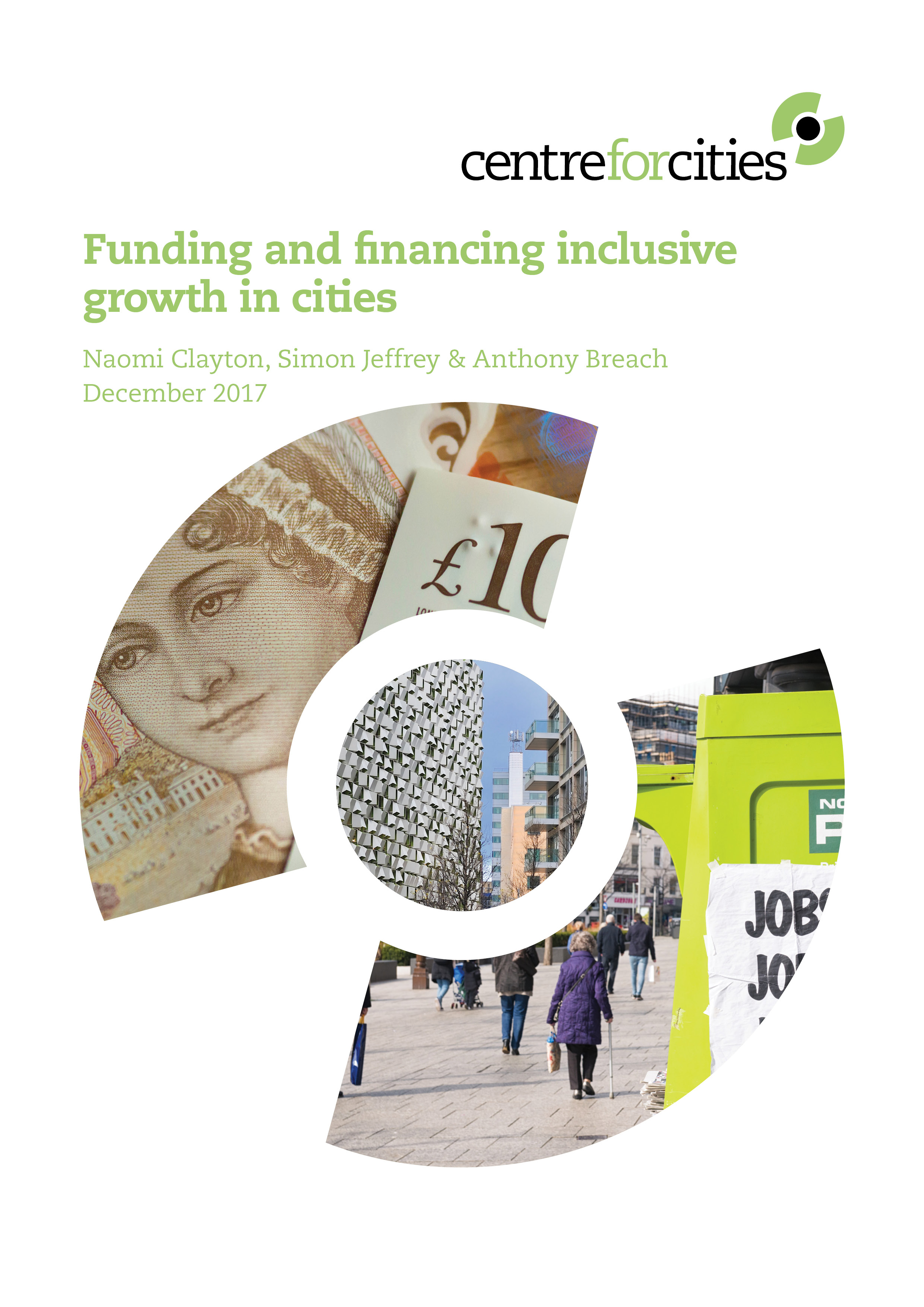04Conclusion and recommendations
Cities have a crucial role to play in supporting inclusive growth in order to tackle rising inequalities and help drive up living standards. Within the context of local authority budget cuts, it is increasingly important that city and combined authorities find ways to increase revenues, leverage returns on their investment, encourage investment from other stakeholders, and coordinate spend of organisations within cities to support better outcomes. Policy innovation can make cities more attractive for private investment and/or help populations with particular needs.
Recommendations for cities
Every city or combined authority should establish an Inclusive Growth Investment Commission. These Commissions should have three main objectives: 1) identify inclusive growth priorities, 2) develop financial mechanisms to address inclusive growth priorities, and 3) coordinate spend within the city or combined authority.
The Commissions should explore ways to raise revenue through the introduction or retention of taxes and fees. Cities are currently relatively limited in their ability to do this and many of the potential options would require a change in legislation. One of the most feasible options with a clear link to inclusive growth is the Workplace Parking Levy.
- Cities should consider how the introduction of a Workplace Parking Levy (WPL) could help to fund, and lever in additional investment for, public transport.
The Commissions should also find ways to leverage investment through financial instruments, land and assets, and their convening powers.
- Cities should consider supporting Responsible Finance providers with grant funding or capital lending to help fill the finance gap for businesses in need.
- Cities, particularly those with less buoyant economies, should consider how LABVs can be used to develop key sites within the city to support economic growth.
- Cities should work with intermediary organisations to convene investors and donors to create place-based funds for inclusive growth policies.
These innovations cannot make up for the cuts in national government funding, lack of fiscal autonomy at the local level or public service reform. It is also likely to remain far easier for cities with more buoyant economies to access funds and investment than less buoyant ones. The decisions made by national government continue to have a fundamental bearing on the ability of city authorities to fund policies that support better outcomes at the local level.
Recommendations for national government
- Government should allow cities to introduce a hotel tax as part of a broader set of measures to devolve more tax-raising powers to cities.
- Government should work with local authorities to pilot different forms of ‘welfare earn-back’ to enable public service reform.
- Government should abolish stamp duty on asset transfers between public sector organisations within a city or city region.
- Government should allow all cities to purchase land through Compulsory Purchase Orders (CPOs) at market rates.
- Government should support city funds by creating additional incentives for donors and investors, through providing match funding and widening eligibility for existing tax reliefs.
